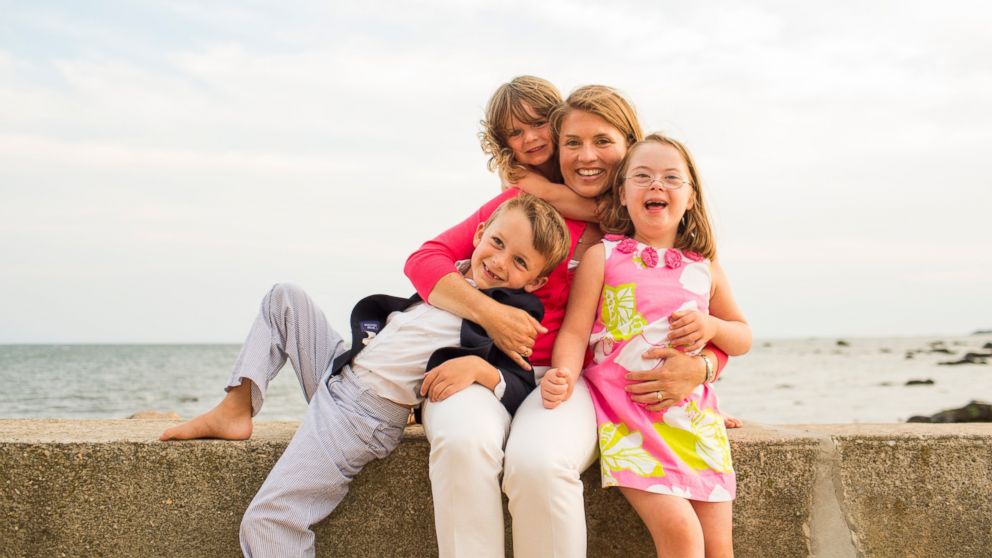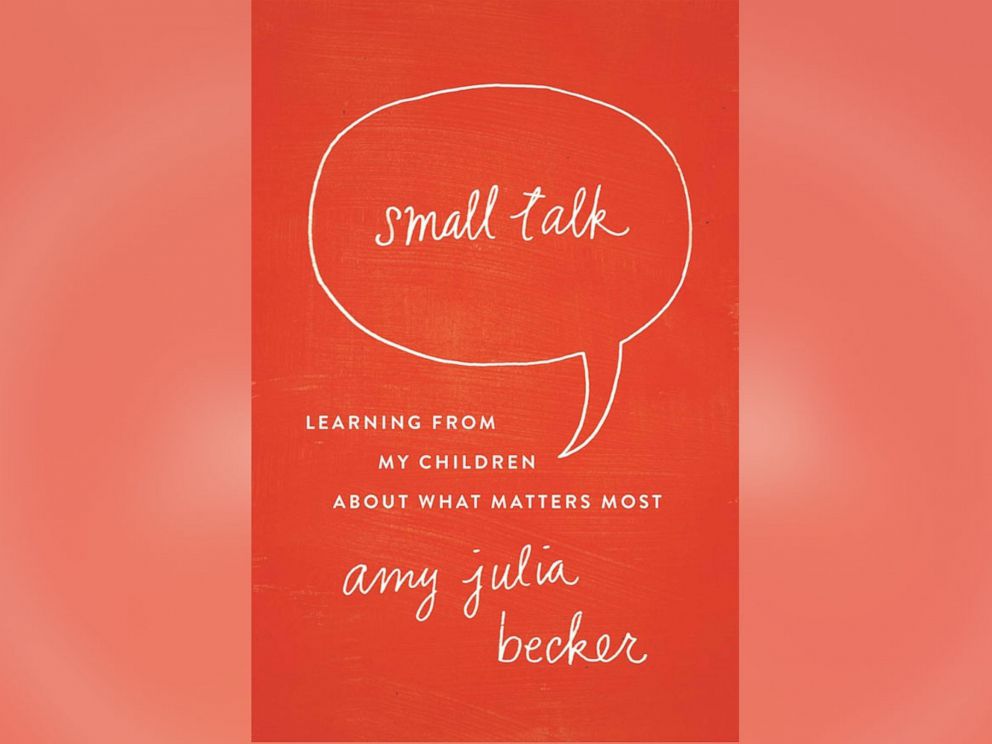What I Learn From My Kids in Talking About Disability
Learning from little ones what matters most.

— -- (Editor's Note: October is Down Syndrome Awareness Month. Amy Julia Becker is the author of both “A Good and Perfect Gift: Faith, Expectations, and a Little Girl Named Penny” and “Small Talk: Learning From My Children About What Matters Most,” available Tuesday. Becker is the mother of three children, including Penny, born with Down syndrome.)
Our 8-year-old daughter Penny was diagnosed with Down syndrome a few hours after she was born. During those early days in the hospital, I fumbled over words to describe her. My husband and I labored to compose an email to announce her arrival.
Eventually, I became comfortable with “person-first” language, calling her “my daughter with Down syndrome” instead of my “Down syndrome baby.” Later, when people asked me about my “risk” of having another child with Down syndrome, I tried to reframe their question in less scary terms, and I replied with my “chance” of having another baby with a third copy of chromosome 21.
But as Penny grew up, and as her younger siblings, William and Marilee, entered our family, I not only needed to learn how to talk to other people about Penny’s chromosomal condition, I needed to figure out how to talk with Penny and her siblings about it, too.

It wasn’t always easy. There was the time I discovered William thought Down syndrome had something to do with drumming (Down sin drum). The time he wrinkled up his forehead in protest when I said Down syndrome makes Penny special. The time when I was pregnant with Marilee and I decided to tell Penny, who was about to turn five, about the complicated emotions we experienced when she was born.
I said, “Pen, when we found out you had Down syndrome, we were scared and sad.” Her green eyes got bigger than ever, as if I had slapped her across the cheek. “Why you were scared?” she asked. With a catch in my throat, I said, “Because we thought Down syndrome would hurt you. And we thought it would hurt us. But it didn’t.”
She nodded slowly, the shock turning to a more serious look. “But it didn’t,” she said. “And you were happy.”
I want my children to grow up understanding what I have come to understand about Penny; that she is a human being with her own gifts and her own challenges, just like everyone else. William attended a pre-school with both typically developing kids and kids with disabilities. One day he asked why a little girl in his class screamed a lot and didn’t listen. I finally said, “Listening must be challenging for her. Is there anything in your class that’s challenging for you?”
He listed challenges for both of them. Similarly, Penny once asked me about a little boy with Down syndrome and said, “It’s hard to understand what he’s saying.”
We went on to talk about what this little boy loves to do, and the things he needs help doing. We made lists of loves and needs for Penny, too. In both cases, we didn’t have to deny the fact that my children’s peers had disabilities.
But instead of framing those disabilities as weaknesses deserving pity or as frightening or negative differences, we talked about them in terms of our common humanity.




